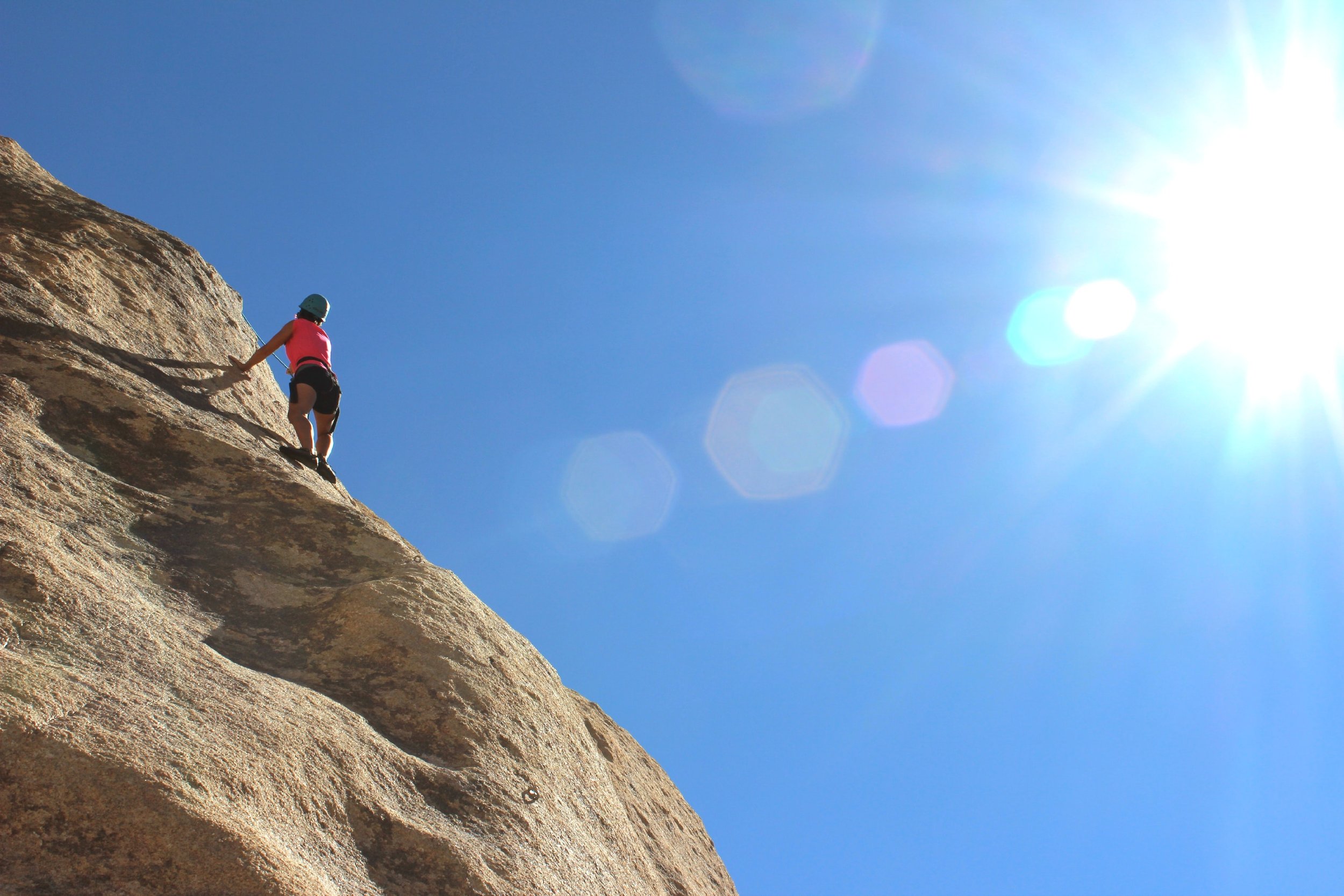Bolting Debate in Joshua Tree Threatens Climbing Across the Country
Climbing in Joshua Tree, photo credit: Samantha Sophia
Joshua Tree National Park is an iconic climbing destination, and land managers are currently developing a climbing management plan, with the goal of protecting natural resources and supporting the public’s desire to “enjoy the park through climbing.” The proposed plan, however, would prohibit fixed anchors in Wilderness areas in the park, a change to well-established policy that would have significant consequences for climbing at Joshua Tree and sets a precedent that could disrupt long standing collaboration between climbers and conservationists across the country.
Thousands of iconic climbing routes in Joshua Tree National Park that require fixed anchors are at immediate risk, including many classic climbs in the Astro Domes, from Solid Gold to Breakfast of Champions to Figures on a Landscape.
Across the country, thousands of established climbing routes are located on designated Wilderness lands, where reforms or bans on bolting could have wide-reaching consequences.
Photo credit: Tommy Lisbin
As background, fixed anchors, which include bolts, pitons, and slings, help protect climbers from falls and help climbers descend from climbs safely and sustainably.
Fixed anchors are critical to rock climbing to ensure safe ascent and descent of technical, vertical terrain where natural protection may not exist. Climbers have used fixed anchors and bolts for decades, since before the passage of the Wilderness Act, and they have made some of the most iconic climbing in America possible, from El Capitan in Yosemite to the Astrodomes in Joshua Tree.
If fixed anchors are prohibited in Wilderness, it could be devastating for the climbing community and make it impossible to scale the peaks that have inspired generations of advocates, disrupt local businesses that facilitate access to these places, and harm local communities that rely on the recreation economy.
Over the years, climbers have been avid supporters of the Wilderness Act, and have worked closely with conservationists and land managers to ensure climbing routes are sustainable. Climbers have helped lead many campaigns to create more protected Wilderness, from Emery County in Utah to new potential protections like the Northwest California Wilderness. Climbing must be managed carefully in Wilderness, and advocacy groups like Access Fund and the American Alpine Club have supported current policy tools around climbing including prohibiting the use of power drills to install bolts and only using anchors as a last resort. These tools are the result of decades of collaboration between conservationists, climbers, and land managers.
A proposed prohibition against fixed anchors would not only jeopardize the safety of climbers, but would set a precedent that could make it nearly impossible for people to climb in some of the country’s most iconic places, from Yosemite to Rocky Mountain to the Black Canyon of the Gunnison.
The Wilderness Act is one of the biggest tools we have to protect wild places across America—and as climbing and other outdoor recreation activities grow in popularity, the conservation movement needs climbers to continue to be powerful advocates. With so many significant issues facing the outdoors—from climate change to underfunding to development—it’s more important than ever that those of us who love and value public lands and waters can focus on the biggest threats and come together to protect them.
Joshua Tree National Park is accepting public comment on its proposed plan, and Access Fund has made it easy to send a message:


